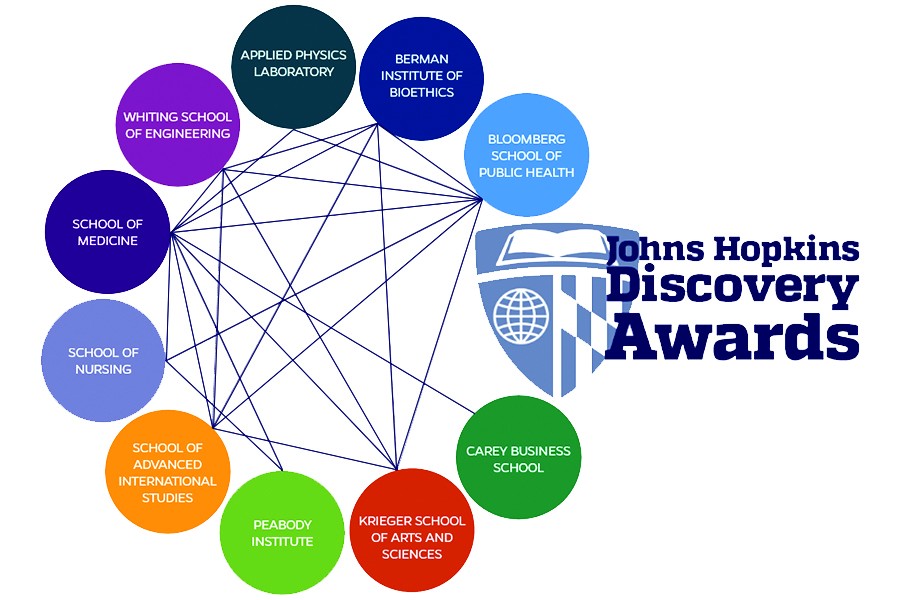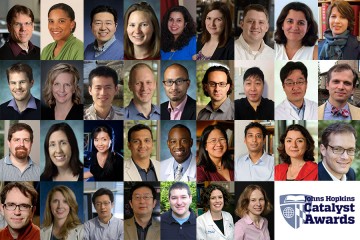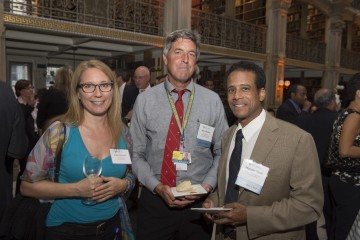Twenty-four cross-divisional teams have been awarded Johns Hopkins Discovery Awards to pursue innovative partnerships on collaborative research projects that bridge dozens of fields.
With these awards, teams will be combining expertise in chemistry and electrical engineering to invent new photovoltaic materials; geriatric medicine and musical performance to improve quality of life for dementia patients and their caregivers; and molecular biology, neurobiology, and pathogen identification to develop a diagnostic device for detecting malaria by breath. In total, the 24 teams are composed of 84 faculty members and research scientists from across 10 Johns Hopkins schools and divisions.
"We are once again inspired by the creative and collaborative proposals received from throughout our university," says Ronald J. Daniels, president of Johns Hopkins University. "These awards provide our faculty the resources to develop interdisciplinary research programs and knit together expertise across Johns Hopkins to pursue novel research questions in a daunting funding environment."
Daniels announced the Discovery Awards program, which will last for three years, in early 2015 along with Provost Robert C. Lieberman and the deans and directors of the academic divisions. Together with the Catalyst Awards program, the two programs represent a $15 million university commitment to faculty-led research.
Teams could apply for up to $100,000 to explore a new area of collaborative work, or request up to $150,000 in project planning funds if they are preparing for an externally funded large-scale grant or cooperative agreement. All the teams are composed of members from at least two Johns Hopkins divisions. The awards were intended to spark new interactions among investigators across the university rather than support established projects.
Senior faculty members from across the university were called upon to review the 167 proposals received. Twenty of the teams selected fall within the $100,000 category while four were chosen for the larger project planning awards. The broadest collaboration draws upon expertise from the schools of Public Health, Engineering, Medicine, Arts and Sciences, Advanced International Studies, and the Berman Institute for Bioethics. That team seeks to reduce the global threat of antimicrobial resistance by creating a framework for countries to develop and implement policies that lower the use of antibiotics in food production.
"It has been remarkable to watch the progress of the teams awarded in 2015. They truly proved that diverse expertise focused on shared challenges can lead to unprecedented progress," says Denis Wirtz, vice provost for research. "Looking at the members and goals of these 2016 teams, we expect no different. We can't wait to see what they can accomplish together."
The full list of recipients and their projects is available on the Office of the Provost website.
Posted in University News
Tagged discovery awards










